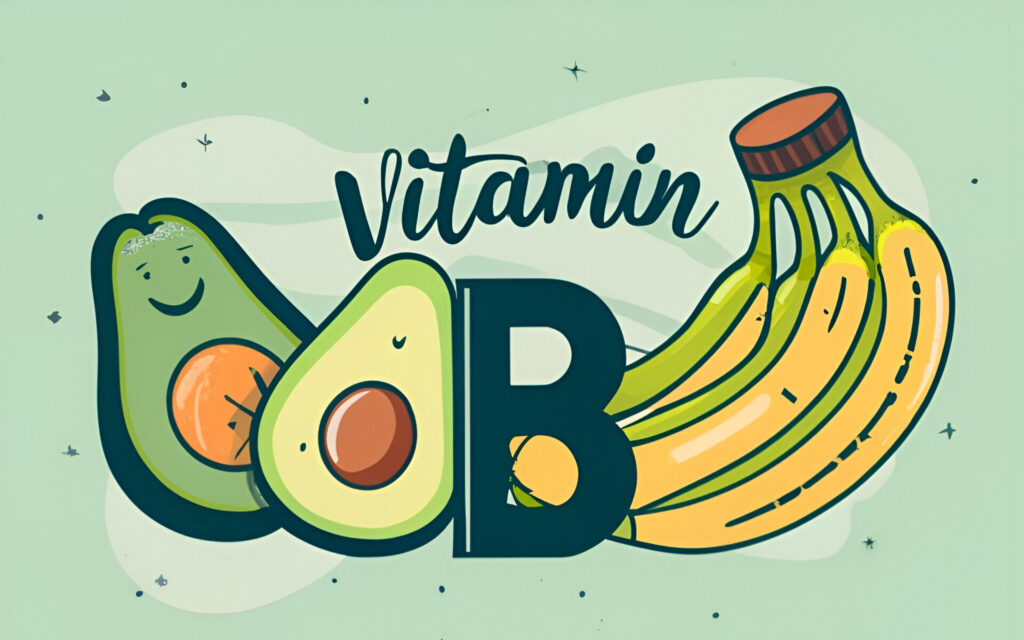Learn how Emergen C Immune Plus can support your immune system and energy levels. Read this detailed article now to find out.
Introduction
Ever feel like you need an extra immune system boost? Especially when it’s cold and flu season and germs are all over the place, and you really don’t want to catch anything. Or maybe you just want to feel more energetic and healthy in general.
If that’s the case, you might have heard about Emergen C Immune Plus. It’s a supplement that claims to help your immune system and give you more energy. It’s not like regular Emergen C, which only has vitamin C and some electrolytes. This one also has B vitamins, zinc, and vitamin D, which are all good for your immune health.

But does it actually work? What’s good about it, and what should you watch out for? So, how about the dosage and timing? How much of this stuff should you have, and when’s the right time to have it? And how does it compare to other things that are supposed to boost your immune system?
Well, I’ve got the answers for you in this article. I’m going to look at the science behind Emergen C Immune Plus, tell you what’s good about it, and give you some tips on how to use it without any problems.
Vitamins and Minerals
Vitamin C
What is Vitamin C?
You’ve probably heard a lot about vitamin C when it comes to staying healthy. It’s like the superstar of vitamins, especially for your immune system. Let me simplify this for you.
Vitamin C is like a shield for your cells. It fights off free radicals that can make you sick or inflamed. Plus, it’s a key player in making collagen, which is like the building material for your skin, bones, and blood vessels. Collagen is a big deal because it helps your body heal cuts and scrapes and keeps infections away.

But that’s not all. Vitamin C also boosts your immune system. It helps in the production of white blood cells, the ones that go to war against bacteria and viruses. And it gives a boost to the natural killer cells, the ones that hunt down infected or bad cells in your body.
How Much Dose is Too Much?
Each packet has a whopping 1000 mg of vitamin C. That’s way more than the daily dose recommended for males (90 mg) and females (75 mg). Why the big number? Well, vitamin C is a water-soluble mineral, which means it loves to hang out in water and gets kicked out in your urine. So, your body can’t save it up for a rainy day; you’ve got to keep the vitamin C flowing.
Now, here’s the truth: Some people think that taking lots of vitamin C can shield them from colds and infections. But, hold on a second. The proof of this is all over the place. Some studies say vitamin C can reduce a few hours or days from your cold, while others say it’s like taking a vitamin nap – doesn’t do much.
What’s the deal? Well, it might depend on things like how much you take, when you take it, how long you take it, and what kind of bacteria or virus you’re battling.
The Side-Effects of Vitamin C
Let’s get something straight: too much vitamin C can create some trouble. The main issue people run into is diarrhoea, and it usually hits when you’re pushing past 2000 mg of vitamin C a day.
But that’s not all – you might also deal with nausea, belly cramps, feeling bloated, passing gas, getting headaches, feeling tired, trouble sleeping, turning red, or even forming kidney stones.
Now, here’s where things get tricky. Vitamin C can interact with certain meds, like aspirin, acetaminophen, warfarin, birth control pills, antibiotics, antivirals, antihistamines, antidepressants, and chemo drugs. It can either enhance their power, tone it down or cause some not-so-fun reactions.
Bottom line: if you’ve got some health condition going on or you’re taking any pills, chat it up with your doctor before diving into supplements.
The Perfect Dose of Vitamin C
Okay, here’s the tip on how much vitamin C you should have every day. It’s like a choice based on things like how old you are, whether you’re a man or a woman, how you’re feeling, what your diet is, and what you like.
The baseline, they call it RDI, is 90 mg for men and 75 mg for women. That’s enough to dodge scurvy, a not-so-fun disease from not enough vitamin C. But here’s the twist – it might not be enough for your immune system.
Some experts say 200 to 500 mg of vitamin C a day is the sweet spot for keeping your health in check. But hold on, if you’re down with a bacteria or dealing with stress (that can lower your vitamin C), you might want to go bigger for a short time – like 1000 mg or more, but just for a few days or weeks.
Also Read – Which Covid Booster to Choose?
Vitamin B
What is Vitamin B?

Vitamin B is a group of 8 vitamins B1, B2, B3, B5, B6, B7, B9 and B12. They team up to help your body do some important tasks.
They make sure your body has the energy it needs, help your brain talk to your body, and make sure your tissues get enough oxygen. Basically, they’re working together to keep you going.
Vitamin B in Emergen C Immune Plus
So, in Emergen C Immune Plus, you’ll find four B vitamins: B6, B12, B3, and B9. Now, listen to this: one packet gives you way more than what you usually need. Like, it’s got 588% of the B6 you need, 1042% of the B12, 63% of niacin (B3), and 100% of folic acid (B9).
But, don’t worry about overdoing it, because B vitamins are cool like that. They’re water-soluble, which means your body just gets rid of the extra through your urine. So, no harm done if you get a little extra boost from Emergen C Immune Plus.
The Side-Effects of B Vitamins
So, a lot of people think taking high doses of B vitamins will give them more energy, a better mood, or boost their brainpower. But here’s the truth: the proof of this is a bit all over the place (it’s all mixed).
Some studies say B vitamins can help your brain work better, especially if you’re older or running low on these vitamins. But then again, some other studies say it may even make you feel worse in the memory, mood, or attention department.
Now, why the mixed results? Well, it’s a bit of a puzzle. It could be how much you take(dose) when you take it(time), how long you take it(duration), what exactly you’re trying to improve, and even what kind of person you are.
Here’s the bottom line, though: don’t go overboard with B vitamins. Too much can mess with you. Like, niacin (B3) can make your skin turn red for a bit, B6 in excess can mess with your nerves, too much folic acid might give you a skin rash, and an overdose of B12 could lead to some acne issues.
Oh, and here’s another truth: B vitamins can interact with certain meds. Like, they might make some drugs stronger or weaker, or even cause some bad side effects. So, if you’re dealing with health conditions or taking any medication, always talk it out with your doctor before you go popping B vitamin supplements. Safety first, right?
The Perfect Dose of B Vitamins
How much of these B vitamins should you take on every day? Well, It depends on how old you are, whether you’re a man or woman, how healthy you are, what you eat (diet), your lifestyle, and what you personally prefer.
See, the recommended daily intake (RDI) for each B vitamin isn’t the same across the board. Take B6, for instance. For men and women aged 19 to 50, it’s 1.3 mg. But here’s the catch: some experts suggest taking higher doses, especially if you’re dealing with things like PMS (premenstrual syndrome), CTS (carpal tunnel syndrome), or feeling blue (depression).
Now, If you’re feeling fine and your plate’s got a good mix of B-vitamin-rich stuff like meat, eggs, milk stuff, whole grains, nuts, seeds, beans, and leafy greens, you might not need any B-vitamin boosters at all.
Zinc
What is Zinc?
Zinc is a mineral that’s pretty important for our body. It does three big jobs: helps your immune system stay strong, helps to heal wounds, and makes sure you can taste your favourite foods.

But that’s not all – zinc is a part of tons of chemical reactions. These reactions keep things in check, like helping improve the immune system, handling swelling, and telling your cells when to grow.
And, zinc supports the immune system very well. It helps immune cells, like T cells, B cells, macrophages, and natural killer cells. Plus, it helps your body make these special proteins called antibodies, which are like little superheroes that find and take down invaders. Zinc’s got your back when it comes to staying healthy!
Zinc in Emergen C Immune Plus
Emergen C Immune Plus packs 10 mg of zinc in each little packet. That’s like 91% of what the experts say you need. They recommend 11 mg for men and 8 mg for women.
Now, here’s the twist: zinc isn’t like those vitamins that dissolve in water. Nope, it gets stored in your cells and tissues. Your body is smart, though. It can sort out whether it needs more or less zinc from what you eat or the extra boost you get from supplements.
The Side-Effects of Zinc
Lots of people think that taking zinc can help ward off those colds and infections. But guess what? Some studies say zinc might reduce a few hours or days of your cold, but others say it’s like taking a sugar pill – no effect whatsoever.
Now, why the mixed results? It could be how much zinc you take when you do it, how long you keep it up, what form it’s in (like a lozenge, syrup, or pill), what kind of infection you’re fighting, and even how unique you are.
But here’s the truth: too much zinc can mess with you. Nausea, especially if you are down more than 40 mg of zinc in a day. But that’s not all, you might also face problems like throwing up, stomachaches, losing your appetite, weird metallic taste, headaches, and feeling super sleepy.
And here’s another truth: zinc can also interact with some medicines. So, if you’re dealing with health conditions or taking any medicines, do yourself a favour and talk it out with your doctor before taking zinc as a supplement.
The Perfect Dose of B Vitamins
Alright, let’s talk about how much zinc you should be taking each day. It all comes down to how old you are, whether you’re a man or a woman, how you’re feeling health-wise, what you eat, how you live, and your personal preferences.
Now, the experts say most men should aim for 11 mg of zinc a day, while women should aim for 8 mg. But here’s the twist: it can change depending on stuff like how old you are, whether you’re expecting a little one or breastfeeding.
And here’s a fun fact: if you’re dealing with acne, eczema, or macular degeneration, some people suggest increasing your zinc dose to maybe 30 mg or even more.
But hold up! If you’re keeping it healthy and your plate’s got a mix of zinc-rich foods like oysters, beef, chicken, pork, beans, nuts, seeds, and whole grains, you might not even need to think about popping zinc supplements. Your body’s probably getting all the zinc it needs from your foods.
Vitamin D
What is Vitamin D?
Vitamin D is one of those vitamins that loves hanging out in fat and does some pretty cool things in your body. First off, it’s your bone’s best friend. Think of it as the “sunshine vitamin” because when your skin gets some sun, it helps make vitamin D.

So, what does it do? Well, it teams up with your diet to help your body grab calcium and phosphorus. These are the minerals that build your bones and teeth. But that’s not all – it makes sure that the right amounts of minerals are cruising around in your blood and tissues.
Vitamin D also boosts your immune system. It tells immune cells like T cells, B cells, macrophages, and dendritic cells to get ready for action. Plus, it makes these cool things called antimicrobial peptides that kill bacteria and viruses.
But wait, there’s more! Vitamin D even influences your mood in a good way. It influences neurotransmitters like serotonin and dopamine. These are responsible for your emotions, motivation, and joy. So, in a way, vitamin D brings some sunshine to your mood too!
Vitamin D in Emergen C Immune Plus
Each packet of Emmergen C Immune Plus has 25 mcg (that’s 1000 IU) of vitamin D. That’s like 125% of what the experts recommend for grown-ups, which is 20 mcg (or 800 IU).
Now, here’s the twist: vitamin D is not water-soluble. Nope, it’s more of a fat-loving vitamin. It hangs out in your fat cells. So, your body can build up its vitamin D stash over time from what you eat or from supplements.
The Side-Effects of Vitamin D
Lots of People think that taking high doses of vitamin D can keep colds and infections at bay but that’s not entirely true at all. Some studies say vitamin D might lower your chances of getting sick, especially if your vitamin D levels are running low. But then again, there are other studies that say it’s like taking a sugar pill – no effect or maybe even a higher risk of getting sick.
But here’s the catch: don’t go overboard with vitamin D. If you overdo it, you might get something called “hypercalcemia.” It’s when your blood has too much calcium, and that can lead to nausea, throwing up, dealing with constipation, getting confused, feeling weak, or even having trouble with kidney stones and heart issues.
Vitamin D can also react with some medicines. So, if you’ve got a health condition going on or you’re taking any medicines, don’t forget to have a talk with your doctor before you dive into the vitamin D supplement world.
The Perfect Dose of Vitamin D
Alright, let’s talk about how much vitamin D you should take each day.
Now, the experts say grown-ups should aim for 20 mcg (or 800 IU) of vitamin D a day. But that number can shift depending on stuff like your age, whether you’re expecting or breastfeeding, and some other factors.
And here’s a fun fact: if you’re dealing with osteoporosis, feeling depressed, or dealing with multiple sclerosis, some experts suggest increasing your vitamin D intake to maybe 100 mcg (or 4000 IU) or even more.
But here’s the thing: if you’re kicking it healthy and you catch at least 15 minutes of sunlight each day, you might not even need to think about taking vitamin D pills or supplements. Your body’s probably soaking up all the Vitamin D it needs straight from the sunshine.
Conclusion
So, Emergen C Immune Plus – it’s like this supplement boost that packs a punch with vitamin C, B vitamins, zinc, and vitamin D. It’s all about giving your immune system and energy a little nudge, but it might bring a few side effects. Just a heads-up, it’s smart to chat with your doctor before diving into the supplement world, especially if you’ve got some health condition going on or you’re taking any meds.
Now, here are some tips for using Emergen C Immune Plus:
- Take one of those packets, mix it up with some water, and drink it once a day.
- Don’t go crazy and drink more than one packet unless your doctor gives the green light.
- Keep your plate looking colourful with fruits, veggies, whole grains, lean meats, and good fats, and drink plenty of fluids.
- Don’t forget to move that body – exercise boosts your immune system.
- Get your good sleep, manage the stress, and keep your environment clean.
Have you given Emergen C Immune Plus a chance? Share your experience in the comments and let us know how it worked!
Create Your Intermittent Fasting Diet Plan in 3 Steps
